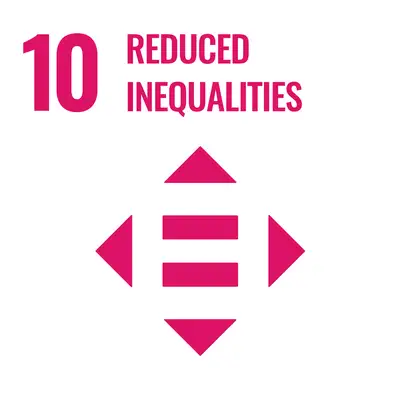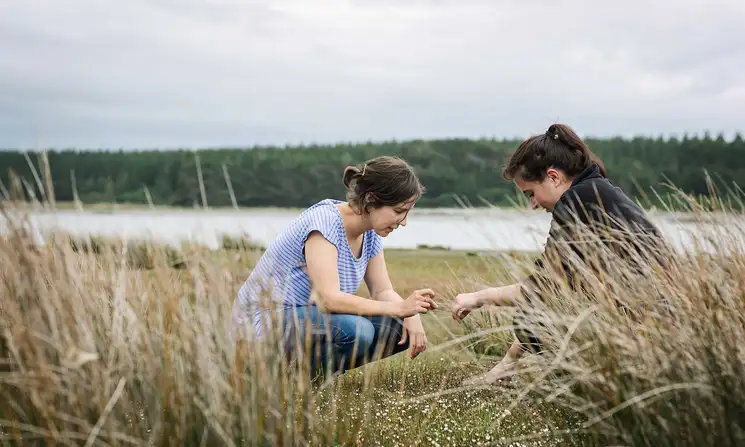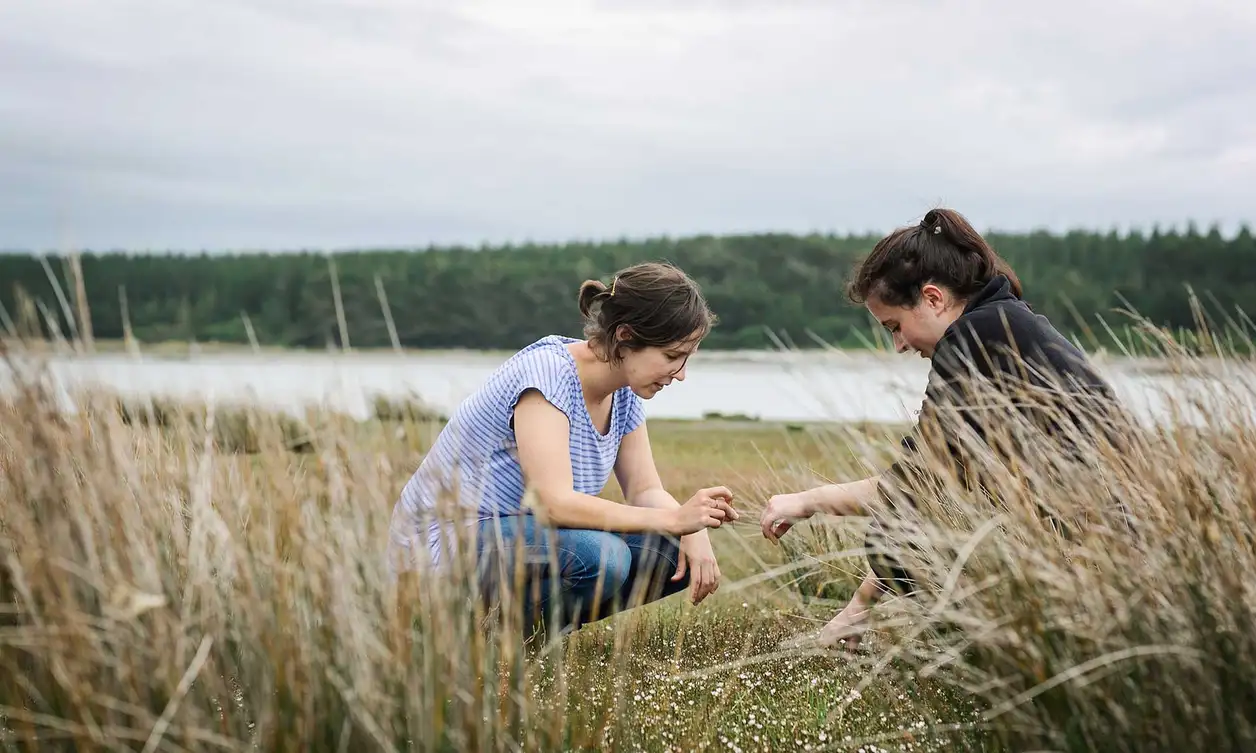On this page
- Māori student numbers increase
- Pacific student numbers increase
- Increasing Māori and Pacific veterinary student numbers
- Support for disabled students
- Recruitment initiatives and programmes
- Inaugural Rainbow Orientation
- Fat Liberation exhibition
- Te Tiriti o Waitangi advancements
- Te Rau Angitū supports over 30 Māori postgraduate students
- Research on Supporting LGBTQ+ Youth
- 10 Years of Social Justice celebrated
- Research published on COVID-19 impacts on minority groups
- Equitable Education promoted in new book
- Related content

Māori student numbers increase
At Massey University, the percentage of Māori students of all domestic students has generally increased in recent years, from 10.4% in 2018 to 13.4% in 2019 to 14.1% in 2020. Between 2021 and 2023, the percentage was stable at 14.6, 14.5 and 14.7%, respectively.
The current rates are similar to the 2023 population estimate for Māori people aged 18 years and over, 14.8% (Statistics NZ 2023 estimate).
Massey had the highest number of Māori students of all New Zealand universities in 2023.
A higher proportion of Māori students are female and over 25 years of age (48% of all Māori students in 2023) compared to the demographics for all students (39.9%). Additionally, Māori students are more likely to study by distance (82.9% compared to 65.4% for all students).
Māori representation among postgraduate students is lower, at 10.3%, compared to the population proportion of 14.8%. However, this figure has increased by 0.4 percentage points since 2022 and by 1.8 percentage points over the past 5 years.
Massey has much support in place for Māori students, including through Te Rau Tauawhi, Massey's Māori Student Centre, Māori deans and Māori student advisers.
Postgraduate and doctoral study support is available through Te Wheke a Toi, Massey's International Indigenous Centre for Critical Doctoral Studies.
Find out more about the support offered to our Māori students
Pacific student numbers increase
At Massey, the percentage of Pacific students has generally been increasing in recent years, from 4.7% in 2018 to 5.1% in 2019 to 5.5% in 2020. Between 2021 and 2023, the percentage has been stable at 5.8, 5.7 and 5.6%, respectively.
While these rates are reaching the population estimate for Pacific people aged 18 years and over, 7.2% (Statistics NZ 2023 estimate), there is still a difference of 1.6 percentage points.
Massey had the third-highest number of Pacific students of all New Zealand universities in 2023.
A higher proportion of our Pacific students are female and over 25 years of age (47.7% of all Pacific students in 2023) compared to the demographics for all students. Additionally, Pacific students are more likely to study by distance (81.6% compared to 65.4% for all students).
Lower proportions of postgraduate students are Pacific, at only 4.4%, compared to the population proportion of 7.2%.
Massey has much support for Pacific students, including the Pacific Student Teaching Support tutoring programme, Pacific student associations and Pacific Learning Advisers.
Find out more about the support offered to our Pacific students
Increasing Māori and Pacific veterinary student numbers
Each year, the number of Māori and Pacific veterinary students grows due to Tāwharau Ora, the School of Veterinary Science’s Māori and Pacific VETMAP admissions programme.
In 2023, there were 47 Māori and 17 Pacific students, increases of more than 30% compared to 2022 and nearly triple from 5 years ago for Māori students and more than double for Pacific students.
Māori and Pacific student numbers continue to grow, and the school expects to reach population parity within the next few years.
The school is committed to ensuring that a new generation of Māori veterinarians can study and thrive in an environment that recognises the importance of connections and relationships with Māori and mana whenua.
This revised pathway honours Te Tiriti o Waitangi and Pacific partnerships. It aligns with local, university and government initiatives for Māori and Pacific student success and the United Nations Directive on the Rights of Indigenous People.
Learn about the VETMAP programme for Māori and Pacific students
Support for disabled students
Massey has a Disability and Inclusion Action Plan to engage with and support the disabled student voice. Furthermore, disability inclusion is 1 of the focuses of Pūrehuroatanga, a strategic initiative emphasising equity, access, and excellence.
Find out more about Massey’s Disability and Inclusion Action Plan
Recruitment initiatives and programmes
Massey has many initiatives which focus on increasing the number of Māori and Pacific students to increase their representation in the university's student population. Initiatives include:
- Te Manu Taiko. A kaupapa Māori programme for years 12 and 13 Māori high-school students. This programme is an opportunity for Akongo Māori to be informed, be inspired, get a taste of university life, celebrate being Māori and plan for their future studies.
- Pacific Islands Leaders of Tomorrow (PILOT) Leadership conferences are for high-achieving Pacific secondary school students in Auckland.
- Kei a Tātou te Ihi (KATTI). A Māori initiative aimed at supporting Māori secondary school students in Auckland with Careers and Transition Education to encourage students to complete schooling to Year 13 and also to promote tertiary study options.
- Māori and Pacific spaces and facilities are available on each campus, including the marae on the Wellington and Manawatū campuses.
- Māori and Pacific Career Expos.
- Māori and Pacific student scholarships.
- Māori and Pacific Student Recruitment advisers. These advisers can answer questions and guide students along the pathway of their chosen course of study.
- Information sessions promoting Māori and Pacific students for Veterinary Sciences.
- Future Māori and Pacific whanau evening.
Massey also focuses on reaching and supporting first-in-family learners and other non-traditional learners.
- Information evenings are run in many smaller towns in New Zealand to help find these students, including online webinars.
- School-leaver scholarships to enable equity are also available.
Find out more about:
Inaugural Rainbow Orientation
In 2023, Massey celebrated its inaugural Rainbow Orientation, attracting nearly 600 students.
The university also launched a new social media platform, Kāhui Irarau, to promote and create safe spaces for its rainbow community.
Fat Liberation exhibition
A memorial exhibition showcasing Dr Cat Pausé’s collection of Fat Liberation photographs, titled 'I Love Ya, You Fat B**ch', was hosted. Dr Pausé was a passionate advocate for the rights and dignity of fat people.
Te Tiriti o Waitangi advancements
Massey celebrated the launch of the Kaiārahi Tiriti Project, which aims to elevate excellence in Te Tiriti o Waitangi analysis and practice across the university.
Professor Rangi Mātāmua ONZM was honoured as Kiwibank New Zealander of the Year. The renowned scholar played a pivotal role in establishing New Zealand’s newest public holiday, Matariki.
Te Rau Angitū supports over 30 Māori postgraduate students
In 2022, Te Rau Angitū guided over 30 Māori postgraduate diploma, master and doctoral students on their learning journeys.
This holistic Māori postgraduate awards programme offers academic support and manaakitanga. It also contributes to student fees and research costs.
Research on Supporting LGBTQ+ Youth
Te Pūtea Rangahau, a Marsden Fund, was received for a project to explore transgender young people’s experiences of positive family support in Aotearoa New Zealand. It aims to identify what support looks like for young people from diverse cultures.
Other research aims to better understand the vast mental health disparities experienced by LGBTQ+ youth and to improve evidence-based clinical care for these youth and their families.
10 Years of Social Justice celebrated
Massey’s Center for Culture-Centered Approach to Research and Evaluation celebrated ten years as a global hub addressing questions of social justice. A free 5-day in-person and online conference marked the anniversary.
Research published on COVID-19 impacts on minority groups
Massey researchers collaborated to assess the impacts of the COVID-19 pandemic on minority groups, including disabled people and older Chinese immigrants.
Access to healthcare and racial discrimination were ongoing issues throughout the pandemic.
Equitable Education promoted in new book
The book Ki te hoe! Education for Aotearoa, co-edited by Dr Pania Te Maro, was published. The publication addresses how to enact Te Tiriti o Waitangi and equitably privilege mātauranga, kaupapa and tikanga Māori with other knowledge systems that are typically privileged.








